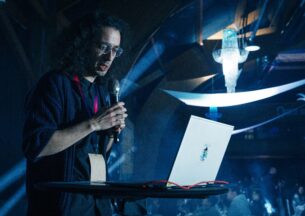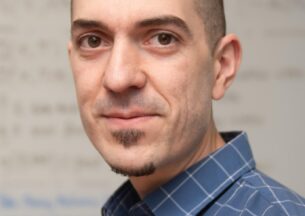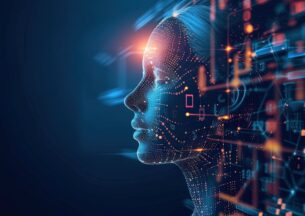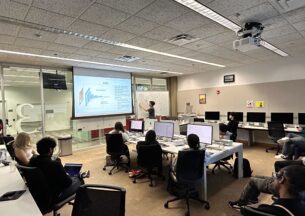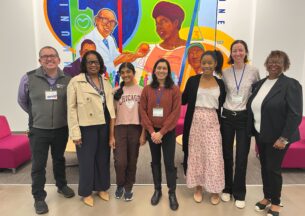Hank Hoffmann Named New Chair For The University of Chicago’s Department of Computer Science
Professor Hank Hoffmann has been appointed Chair for the Department of Computer Science beginning September 1, 2023. He will continue to serve over the next three years, building on the work laid out by the department’s current Liew Family Chair, Mike Franklin. In response to the announcement, Franklin wrote that he “couldn’t be more pleased about this choice”.
Hoffmann completed his PhD in Electrical Engineering and Computer Science at MIT, where his research on self-aware computing was named one of ten “World Changing Ideas” by Scientific American in December 2011. He received his SM degree in Electrical Engineering and Computer Science from MIT in 2003. As a Masters student he worked on MIT’s Raw processor, one of the first multicores. Along with other members of the Raw team, he spent several years at Tilera Corporation, a startup which commercialized the Raw architecture and created one of the first manycores (Tilera was sold for $130M in 2014). His implementation of the BDTI Communications Benchmark (OFDM) on Tilera’s 64-core TILE64 processor still has the highest certified performance of any programmable processor.
 In 2015, Hoffmann received the DOE Early Career Award. He was granted early tenure in 2018, and went on to receive the President’s Award for Early Career Scientists and Engineers (PECASE) in 2019. Additionally, he is a member of the ASPLOS Hall of Fame and the Samsung Smart TV, Audio, and Displays Hall of Fame. At the University of Chicago he leads the Self-aware computing group (or SEEC project) and conducts research on adaptive techniques for power, energy, accuracy, and performance management in computing systems.
In 2015, Hoffmann received the DOE Early Career Award. He was granted early tenure in 2018, and went on to receive the President’s Award for Early Career Scientists and Engineers (PECASE) in 2019. Additionally, he is a member of the ASPLOS Hall of Fame and the Samsung Smart TV, Audio, and Displays Hall of Fame. At the University of Chicago he leads the Self-aware computing group (or SEEC project) and conducts research on adaptive techniques for power, energy, accuracy, and performance management in computing systems.
“I hope to continue the great work the department has done over the last decade,” said Hoffmann. “Internally, I want this to continue to be a place where all our staff, students, postdocs, and faculty feel proud to work and empowered to achieve their best. Externally, I hope to continue to raise our stature and standing in the community.”
The department has been rapidly expanding since 2017, including the addition of 37 faculty members with specialties in rising research areas such as data science, security, machine learning and artificial intelligence, visual computing, and human-computer interaction.
“I joined this department 10 years ago because it presented a unique opportunity to be part of the team that expanded the department’s historical strength in theory into new areas. I’ve been amazed at the growth and expansion since I got here and am now extremely humbled that I was chosen to steward the department through its next phase.”


